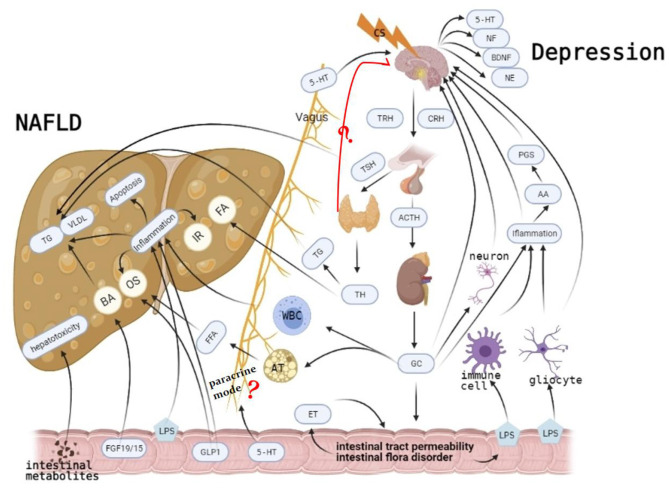Figure 1.
Long-term psychological stress induces the increase and accumulation of glucocorticoid (GC). On the one hand, it induces non-alcoholic fatty liver disease (NAFLD) by mediating liver transport of white blood cells and decomposition of fat cells. It also mediates major depressive disorder (MDD) occurrence by elevating inflammatory factors, damaging neurons, and inhibiting the negative feedback of the hypothalamic–pituitary–adrenal (HPA) axis. It also affects intestinal permeability and intestine flora, gradually leading to mutual promotions of NAFLD and MDD, causing disease outbreaks. Although more studies have shown that hypothyroidism is more related to MDD, there is still a big divergence between thyroid function and MDD. Its specific mechanism, which causes MD through paracrine mode, is still unclear. Similarly, the specific mechanism of MDD caused by intestinal flora through paracrine is not clear. Causal relationships between them should be further studied.

